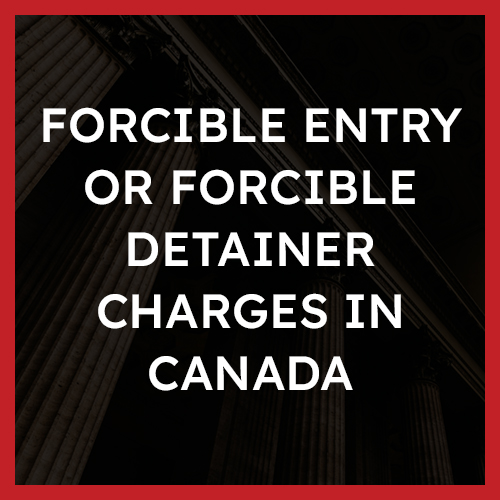Is blackmail a crime in Canada?
Yes, it is illegal to blackmail someone in Canada. In criminal law, blackmail is known as ‘extortion,’ and it is a criminal offence under section 346 of the Criminal Code.
What is blackmail (extortion)?
Blackmail/extortion contains four parts:
- The use of threats, accusations, menaces, or violence against a person.
- The accused person had the intention to try and ‘get something’ from the other person or cause them to do something.
- The threats/accusations were made in order to try and induce the other party into doing that something.
- The person making the threats/accusations had ‘no reasonable excuse or justification’ for making those threats/accusations.
Common examples of blackmail might include:
- Threatening to hurt someone if they do not pay you back a debt owed
- Telling someone you will release their private information if they do not return your property to you
- Threatening to call the police and have someone criminally charged if they do not do something for you
- Telling someone that you will ruin their reputation if they do not pay you money
- Threatening to hurt someone’s friend/family member if they do not give you something
It does not matter if:
- The person making the threats did not actually go through with them
- The threatened party did not comply with the threats/accusations
- The private information the party is threatening to release is true or false
- The person making the threat has a legal right to the thing/property they are threatening the other person over
- The threat is made to a third party, not the person being blackmailing
Any of the above behaviour/actions may still constitute blackmail (extortion).
Intention is a critical part of an extortion charge. In other words, you must intend to get something or intend to induce the other person into doing something, otherwise, the requirements for extortion may not be met.
What are the penalties for extortion?
Extortion is a serious crime and can carry with it severe penalties. If convicted, the accused might face a criminal record and prison time. This can have serious impacts on your ability to gain employment, travel, Canadian citizenship, and other areas of your life. The maximum sentence for extortion is life in prison. For most types of extortion, however, there is no minimum sentence. Having no minimum sentence means that the courts have a great deal of flexibility in deciding on a penalty. As stated above, extortion is usually a very fact-specific offence, which means that the penalty can vary significantly.
However, when the extortion involves restricted/prohibited firearms, or if it is related to a criminal organization (such as a gang), there is a minimum sentence of five years in jail. This increases to a minimum of seven years in prison if you have been convicted of extortion (or other firearm-related offences) in the past ten years.
Are there any legal defences to extortion charges?
There are two main defences to a charge of extortion: reasonable justification/excuse, and the threat of legal proceedings.
Section 346 states that if the threats were made with reasonable justification or excuse, then no offence will have taken place. However, the Criminal Code does not define what ‘reasonable justification’ is. As with the offence itself above, a reasonable justification is usually very fact-specific. The courts tend to look at the context of the threat, and the ‘legitimacy’ of the method being used to determine whether or not something is a reasonable justification/excuse.
Section 346 also creates an exception to extortion if you are threatening to initiate legal proceedings against the other person. If you are threatening to sue someone, that does not count as extortion.
I have been charged with extortion. What should I do?
The law around extortion can be extremely complicated. The best course of action if you or someone you know has been charged with extortion is to contact an experienced criminal defence lawyer. You can book a free consultation with Strategic Criminal Defence online or over the phone to get legal advice.
‘Hard bargaining’ or using ‘distasteful’ means of collecting a debt may not necessarily be blackmail/extortion. Though the line can be blurry, the law is focused on criminal behaviour, not legitimate methods of recovering legally owned property or debt owed.
About The Author







